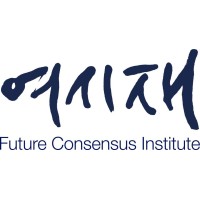TDFD Recommendations
Our Members
TheTDFD consists of organisations as well as individual members from all sectors, academia, financial institutions, energy companies and public agencies
The TDFD Co-Chairs, Yuhyun Park and Lutfey Siddiqi, lead the taskforce.
Yuhyun Park
Founder & CEO
DQ Institute Global Standard for Digital Literacy, Skills and Readiness
Dr. Yuhyun Park is a world-leading expert in digital skills and child online safety. She created the Digital Intelligence (DQ) concept and framework, which is the world’s first global standards and a common framework for digital literacy, skills, and readiness (IEEE 3527.1) which was endorsed by the IEEE Standards Association, OECD, and World Economic Forum in 2018.
Dr. Park developed the Child Online Safety Index, the world’s first real-time metric tracker to help nations understand their children’s online safety status, and leads the #DQEveryChild initiative, a global digital citizenship movement for children.
In addition, she has been serving in various international leadership positions related to digital economy, skills, and safety, including as the leader of the EQUALS ITU Digital Skills Coalition, the chair of TikTok Safety Advisory Council AP, and International Lead for Digital Economy in the G20 Civil Society (2020). She also serves as an adjunct professor at Yonsei University and a board member at Future Consensus institute in South Korea.
She has received several international awards, including recognition as a World Economic Forum Young Global Leader, Ashoka Fellow, Eisenhower Fellow, and multiple UNESCO prizes. She co-authored the “Dictionary for Economics”, which is the most widely used dictionary for economics in Korea. Her academic experiences include serving as an adjunct professor at Yonsei University in Korea and as a director at Nanyang Technological University in Singapore. Dr Park completed her Ph.D. degree and post-doctoral studies in biostatistics at Harvard University.

Lutfey Siddiqi
Visiting Professor in Practice
London School of Economics IDEAS
Lutfey Siddiqi is a Visiting Professor in Practice at LSE IDEAS and a co-investigator at LSE Inclusion Initiative (TII). He is a member of the advisory boards of LSE Systemic Risk Centre, LSE IDEAS and TII. He is also an Adjunct Professor at the National University of Singapore (Risk Management Institute) and advisory board member of the Centre for Governance and Sustainability (CGS) at NUS business school.
He was previously Global Head of Emerging MHe was previously Global Head of Emerging Markets for Foreign Exchange, Rates & Credit at UBS Investment Bank where he was also the founding head of UBS Knowledge Network. Prior to that, he was a Managing Director at Barclays Bank in charge of a business-line across Asia Pacific.
Lutfey was recognized as a Young Global Leader by the World Economic Forum in 2012 where he has served on their global future councils since 2014 and spoken on the official Davos program for several years. He is a governor of UWC Atlantic College and former governor of New City College London. A former member of the Court of Governors, investment committee and health & safety assurance committee, he is now an Emeritus Governor of LSE.
A CFA Charterholder, former board member of CFA Singapore, and an inaugural member of the CFA Future of Finance content council, Lutfey served briefly as a Managing Director and member of the executive leadership team of CFA Institute. He is also a Distinguished Fellow at Policy Research Institute, Bangladesh.
Lutfey has an extensive media presence. He speaks and writes on topics in Finance, Investing, Risk Management, Sustainability, ESG, Macroeconomics, Geo-politics, Emerging Markets (esp. Asia), Capital Markets, Banking & Regulations and Policy Communications. In addition, he facilitates executive programs on Leadership, Diversity, Board Governance and Change Management.
Overview
Recommended Disclosures
The recommended disclosures for all sectors are structured around five pillars:
1. Governance
2. Strategy
3. Risk Mitigation
4. Opportunity Enhancement
5. Monitoring
Governance
Disclose the company’s governance regarding digital-related issues.
- Board: Describe the board’s oversight of digital-related risks and opportunities, including accountability, roles, responsibilities, and discussion processes.
- Management: Describe management’s assessment and management of digital-related risks and opportunities, including board delegation, management process, accountability, and partnership initiatives.
Strategy
- Digital Regulations and Policies: Describe the company’s strategy for navigating the ethical, legal, and regulatory landscape of digital-related issues, including commitment, management, integration of ethical standards, and employee training.
- Investment in Digital Ethics/Sustainability: Describe the company’s approach to investing in digital ethics and sustainability, including technology integration, risk identification, resource allocation, and investment in the cross-economy.
- Economic Impact of Digital Ethics and Sustainability: Describe the actual and potential impact of digital-related risks and opportunities on the organization’s finances and businesses, including controversies, regulatory violations, and business performance improvements.
Risk Mitigation
- Internal Risk Mitigation Processes: Describe the company’s overall risk management policies, processes, technologies, and practices for identified digital-related risks.
- Data Protection and Privacy: Describe the company’s policies, processes, technologies, and practices to mitigate data protection and privacy risks.
- System Cybersecurity and Resilience: Describe the company’s policies, processes, technologies, and practices to mitigate cybersecurity and system reliability risks.
- User Digital Safety: Describe the company’s policies, processes, technologies, and practices to mitigate digital safety risks of users.
- Trustworthy AI: Describe the company’s policies, processes, and practices to mitigate various risks associated with AI systems and ethics.
- Stakeholder Engagement: Describe the company’s policies, processes, and practices to manage risks associated with various stakeholders within the digital ecosystem.
- Digital Environmental Risk Mitigation: Describe the company’s policies, processes, and practices to manage environmental risks stemming from the uses of digital and AI technologies.
Opportunity Enhancement
- Digital Human Capital: Describe the company’s policies, processes, and practices for developing digital talents and fostering an agile digital work culture.
- Digital Inclusion: Describe the company’s efforts to promote universal access, digital literacy, and equity, bridging the digital divide.
- Digital Trust and Societal Well-being: Describe the company’s initiatives to enhance trust in society and mitigate the negative impacts of digital/AI technology on societal well-being.
- Cross-Economy Innovation: Describe the company’s initiatives to enhance environmental sustainability through waste transformation, material innovation, and digital/AI technological innovation.
- Digital Carbon Accounting: Describe the company’s practices for measuring, tracking, and reporting carbon emissions and utilizing digital carbon credits.
Monitoring
- Metrics: Disclose the metrics used by the company to evaluate digital-related risks and opportunities.
- Targets: Describe the targets and goals established by the company to address digital-related issues and track performance against them.
- Reports & Publications: Describe how the company intends to present its disclosures in line with the TDFD recommendations, ensuring transparency and accessibility for stakeholders.


